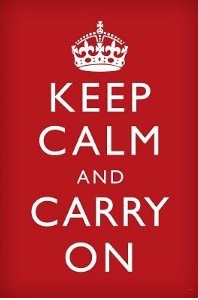Tips for Handling the Stress of Sandy
- Wednesday, 07 November 2012 17:07
- Last Updated: Wednesday, 07 November 2012 17:14
- Published: Wednesday, 07 November 2012 17:07
- Hits: 4525
 As a mental health clinician and mother of twins in Edgewood who has not had power since last Monday, I found myself asking the same questions many people have posed to me. I want to reassure others (and perhaps myself) that as complicated as life is now, we will all recover from Hurricane Sandy. Life will return to our own definition of normal. Even shrinks need to remind themselves of that from time to time.
As a mental health clinician and mother of twins in Edgewood who has not had power since last Monday, I found myself asking the same questions many people have posed to me. I want to reassure others (and perhaps myself) that as complicated as life is now, we will all recover from Hurricane Sandy. Life will return to our own definition of normal. Even shrinks need to remind themselves of that from time to time.
Recognize and Validate “Unseen Loss.”
Loss and pain is unique to each person and should be treated as such. Yes, for most of us Hurricane Sandy has not manifested in the tragic loss of human life nor has it destroyed our town and neighborhoods as we know them. We are fortunate not to have been living in Breezy Point or Staten Island. For that, we are eternally grateful and recognize our luck at having been spared these horrible and painful experiences. During times of tragedy and disasters, we likely compare our own plight to others’ who have lost a great deal more than we. Of course, what we have experienced in Scarsdale does not come close to the depth and magnitude of human suffering in communities ravaged by the hurricane. But, don’t be fooled into thinking that we haven’t experienced our own losses or that they don’t matter. They do matter. Each of us experiences loss and pain in unique ways, usually related to our past experiences, emotional and physical constitutions and coping skills.
We can easily see the damaged houses and cars, downed power lines, the loss of a favorite tree and gasoline shortages. We are consciously aware of these things but I suggest that it is equally, if not more important, to focus on the “unseen losses.” We have lost stability and structure in our everyday lives. Getting to work is no longer jumping on the train to a subway and landing in the office by 8am. Making dinner isn’t zapping frozen food into the microwave (yes, that’s usually dinner in my house). The storm has taken away much of what we experience as normal and that in itself is a loss. Allowing ourselves to recognize these losses is the basis for our ability to manage and heal from them.
Feeling Out of Control is a Normal Reaction to an Abnormal Situation
Although you may feel as if you are “out of control” or “having a nervous breakdown” (not a technical word in the psychiatric world), odds are you aren’t. What you are experiencing is most likely an anxiety reaction to a stressful situation. Anxiety can interfere with our sleep, concentration, and ability to feel connected to people. It can manifest in physical discomfort such as dizziness and gastrointestinal problems. Anxiety is fleeting. It may feel like it lasts forever but it rarely does. Taking slow deep breaths in through your nose and breathing out through your mouth can help promote muscle relaxation and thereby reduce anxiety. Remember, your body cannot be simultaneously anxious and relaxed.
Perhaps you’ve heard it before. What matters most is not necessarily the crises experienced but the ways in which we respond to them. We cannot control when the Con Ed crew will repair our power lines but we can choose how to deal with these situations. We can become enraged while waiting in long gas lines or we can listen to music, we can worry incessantly or we can choose to deal with one issue at a time. We can feel as if the external world is defining our lives or we can take control of what we can. It’s important to remind ourselves that although some important things are out of our control today, we do have the power (no pun intended) to control more than we realize.
Reach Out and Touch Someone
Literally, human contact can make us feel better. Chatting with family, friends, neighbors, even people next to us in the supermarket can make us feel less alone and therefore less vulnerable. This is especially true for those of us who are used to being with peers in pressured work environments and who are now attempting to work from home with all that entails (Do I hear screaming children in the background of that conference call?). Vulnerability can predispose us to unnecessary stress. Being social, whether in-vivo or virtual, can actually “inoculate” us against the deleterious side effects of chronic stress.
Move
No, I don’t mean move from Scarsdale (as tempting as that seems to me at the moment), but move your body. We all know the research about the importance of exercise and the release of endorphins, the body’s “feel good” chemicals. Run up and down your steps. Do some basic stretching exercises. (As I am not an exercise aficionado I am taking my own advice on this one).
 Michelle Sanders, M.S. Ed., Psy. D. has a doctorate in child clinical psychology. She lives in Scarsdale with her husband and ten year old twins. Dr. Sanders will be opening her private practice, specializing in children, in the Spring of 2013. She has held faculty positions at Pace University in New York City and the Albert Einstein College of Medicine in the Bronx. Her research has been published in several academic journals. You can reach her at: Sandersmichelle@optonline.net. Michelle is not a physician and recommends that psychological or physical symptoms be assessed by a mental health or medical professional. Her suggestions are not a substitution for medical advice.
Michelle Sanders, M.S. Ed., Psy. D. has a doctorate in child clinical psychology. She lives in Scarsdale with her husband and ten year old twins. Dr. Sanders will be opening her private practice, specializing in children, in the Spring of 2013. She has held faculty positions at Pace University in New York City and the Albert Einstein College of Medicine in the Bronx. Her research has been published in several academic journals. You can reach her at: Sandersmichelle@optonline.net. Michelle is not a physician and recommends that psychological or physical symptoms be assessed by a mental health or medical professional. Her suggestions are not a substitution for medical advice.